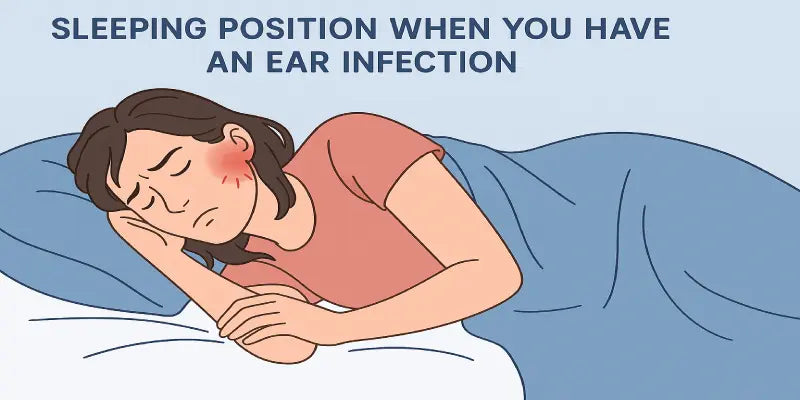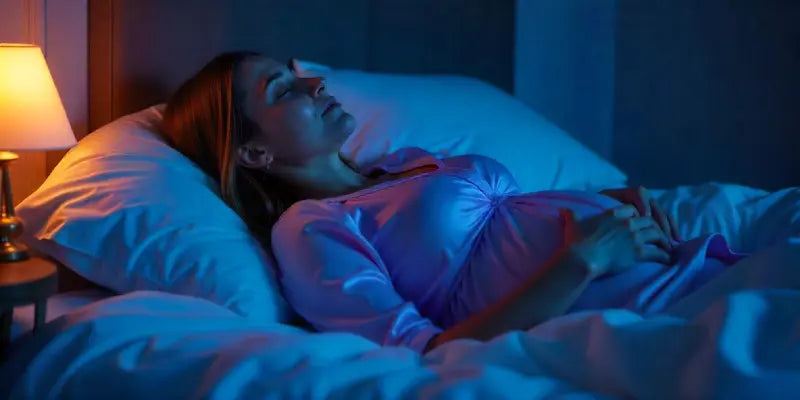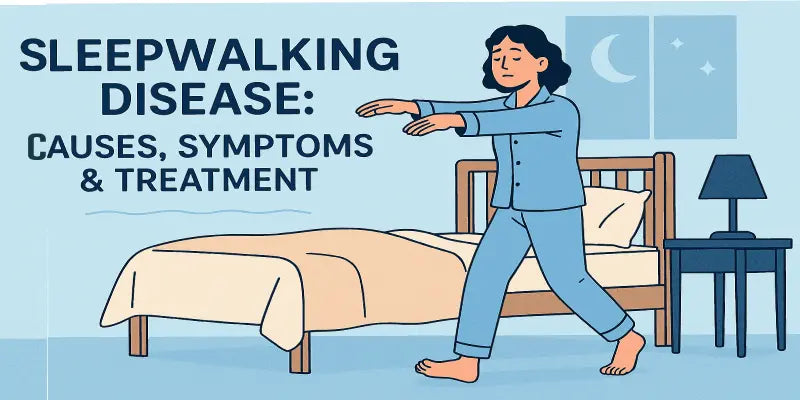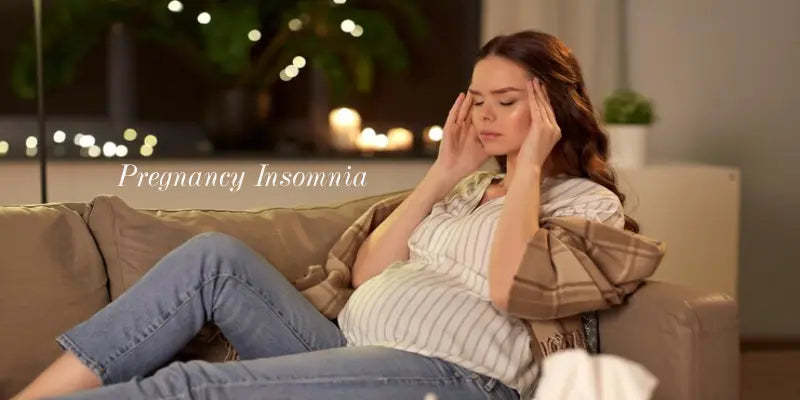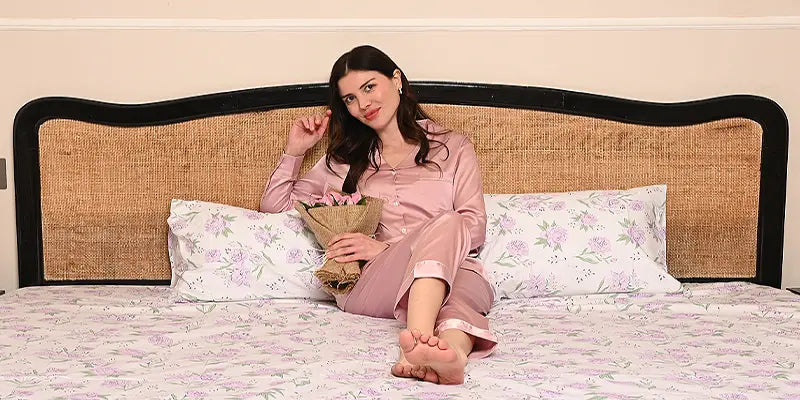
Is a Humidifier Good for a Baby?
The dry air in India can make your skin, lips, throat, and nose feel uncomfortable, especially during the colder months. This dry air can also affect your baby, causing similar discomfort. Many parents worry about how to keep the air in their home comfortable for their baby. A humidifier can help with this. But, is it safe and good for babies?
In this blog, we’ll explain what a humidifier is, how it benefits babies, how to use it for baby congestion, what to add to it for a baby with a cough, and which humidifier is best for your baby.
What is a Humidifier for a Baby?
A humidifier for baby is a device that adds moisture to the air in order to increase humidity levels in a room. For babies, it’s especially important because their skin and airways are more sensitive to dry air. Humidifiers help maintain a healthy balance of moisture in the air, which can be particularly helpful during winter months when heating systems tend to dry out indoor air.
There are different types of humidifiers, including cool mist, warm mist, and ultrasonic. Cool mist humidifiers are often the most recommended for babies, as they help keep the air moist without raising the temperature, which could potentially make a room too warm for your little one.
What are the Benefits of a Humidifier for a Baby?
Using a humidifier in your baby’s room can offer several key benefits:
Moisturizes Skin
Dry skin is a major concern, especially in colder months. Babies have delicate skin that can become dry and irritated in low humidity. Dry skin can cause many problems such as eczema, rashes or atopic dermatitis in babies and can also affect their sleep. A humidifier can help keep their skin hydrated and soft.
Relieves Congestion
Most babies suffer from congestion and it can be a major discomfort for your baby as well as you. It can make it hard for the baby to breathe freely. If your baby is suffering from a cold or nasal congestion, a humidifier can ease breathing by keeping the airways moist, making it easier for your baby to breathe.
Prevents Dry Throat
Sometimes your baby is not sleeping and the reason could be a scratchy throat. Dry air can lead to a scratchy throat, making it uncomfortable for your baby, especially when they are trying to sleep. A humidifier can help alleviate this discomfort.
Promotes Better Sleep
Along with helping with dry skin and congestion, it can also help your baby with the best humidity level for sleeping at night. With improved air quality and comfort, your baby can rest more soundly. A comfortable baby is more likely to sleep through the night.
Reduces Risk of Respiratory Issues
The right level of humidity can help prevent respiratory issues, as overly dry air can lead to nosebleeds or dry sinuses in babies. If the baby’s nose gets snooty, turn on your humidifier, it can help them feel better.
How to Use a Humidifier for Baby
Using a humidifier for your baby is easy, but there are some important tips to follow to ensure it’s both effective and safe.
- Choose the Right Location: Place the humidifier in a safe spot, ideally near your baby’s crib, but not directly on their bedding. It should be placed on a flat, stable surface, and at least a few feet away from the crib to avoid moisture buildup on furniture. Keep it out of reach of babies and pets as they can get themselves harmed.
- Keep It Clean: if you leave the water inside the container for a long time, there are chances of mold and bacteria growth inside the humidifier. Bacteria and mold can thrive in humidifiers if they’re not cleaned regularly. Follow the manufacturer’s instructions for cleaning and disinfecting your humidifier to ensure it’s free from germs.
- Adjust Humidity Levels: You don’t want to overdo it. Monitor the room’s condition first, as you want the air inside your baby’s room to be not too dry or wet. Too much humidity can promote the growth of mold. A humidity level between 40-60% is ideal for most rooms. Some humidifiers come with built-in hygrometers to help monitor the humidity.
- Use Distilled Water: Most people make this mistake that can decrease the life of their humidifier by using tap water. Using distilled water is recommended to prevent the buildup of mineral deposits in the humidifier and reduce the risk of bacteria or mold growth.
- Avoid Using Essential Oil: There is very limited research on if we can use essential oils for babies or not. Essential oils can be harmful for babies when ingested or applied undiluted on skin. It can also irritate the baby’s respiratory system. Talk to the doctor before using any essential oil in the humidifier.
How to Use a Humidifier for Baby Congestion
When your baby is congested, a humidifier can help clear their nasal passages and make breathing easier. You can use a cool mist humidifier as it helps loosen mucus in your baby’s nose, making it easier to clear out.
To give your baby the most relief, run the humidifier while they sleep. This can help keep their nasal passages moist and improve their comfort throughout the night. If your baby is congested, you can also use saline nasal drops before turning on the humidifier to help further loosen mucus. Just make sure to follow your pediatrician's advice.
What to Put in Humidifier for Baby Cough
If your baby has a cough, you may be wondering what to put in the humidifier to help soothe them. It's important to be cautious about adding anything other than water to the humidifier. Many pediatricians advise against using aroma oils in a baby’s humidifier, as they can be too strong and even irritate their sensitive airways.
Here are some safe options:
- Just Water: Most of the time, plain water in the humidifier is all you need. The moisture in the air will help ease your baby’s cough by keeping their throat and nasal passages hydrated.
- Saline Solution: If recommended by your doctor, saline solution may be used to help relieve congestion associated with a cough, which can indirectly help with cough symptoms.
- Avoid Essential Oils: Many essential oils, such as eucalyptus or peppermint, are not safe for babies under 2 years old and can cause respiratory issues. Always consult with your pediatrician before adding anything to the humidifier.
Which Humidifier is Best for a Baby?
Choosing the best humidifier for your baby depends on your specific needs and preferences, but here are some features to consider:
- Cool Mist vs. Warm Mist: Cool mist humidifiers are generally safer for babies, as there is no risk of burns from hot water. Warm mist models can also be effective, but cool mist is usually preferred for babies. You can also invest in an ultrasonic humidifier which is the latest technology. It is a type of cool mist humidifier that uses vibrations to break water into a fine mist.
- Noise Level: Look for a quiet humidifier, as loud noises can disturb your baby’s sleep. Many ultrasonic humidifiers are very quiet and run silently.
- Ease of Cleaning: A humidifier that’s easy to clean will help prevent the buildup of bacteria or mold. Make sure it’s simple to disassemble and clean regularly.
- Size: Choose a humidifier that’s the right size for the room where your baby sleeps. If the room is small, a compact unit will work just fine. For larger rooms, consider a larger capacity humidifier.
- Safety Features: Many modern humidifiers come with automatic shut-off features when the water runs low, which is a great safety feature to consider.
Conclusion
So, is a humidifier good for a baby? Absolutely. When used properly, a humidifier can help create a comfortable and healthy environment for your little one, alleviating dry skin, nasal congestion, and improving sleep quality. Just be sure to follow safety guidelines, clean the device regularly, and choose the right model for your baby's room. With the right care, a humidifier can be a valuable tool in promoting your baby's health and comfort.
FAQS
Q. How close should the humidifier be to the baby?
Ans. It’s best to keep the humidifier a little farther away from your baby, about 3-4 feet. This helps prevent any moisture from directly hitting your baby’s skin and keeps the air evenly moist throughout the room.
Q. Is it OK to have a humidifier all night for a baby?
Ans. Yes, it’s generally okay to leave the humidifier on all night for your baby. It can help keep the air moist, especially if your baby has a stuffy nose or dry skin. Just make sure the room isn’t too humid, as that can cause mold or dust mites.
Q. Do pediatricians recommend humidifiers?
Ans. Many pediatricians recommend using a humidifier if your baby has dry skin, a cold, or trouble breathing because it adds moisture to the air. However, it’s important to keep the humidifier clean and humidifier uses correctly.
Q. How do I know if my baby needs a humidifier?
Ans. If your baby is coughing, has a stuffy nose, or seems uncomfortable due to dry air (especially in winter), a humidifier can help. If their skin looks dry, a humidifier can also help add moisture to the air.
Q. Can I put Vicks in my baby's humidifier?
Ans. No, it’s not recommended to put Vicks in your baby’s humidifier unless the label specifically says it's safe. Vicks and other medicated products can be too strong for babies and may cause irritation or breathing issues. Always check the instructions or ask your pediatrician.
Q. How to check humidity in a room?
Ans. You can check the humidity in a room using a device called a hygrometer. It measures the moisture level in the air. You can find these in most stores that sell home goods or online.
Q. Can my phone check the humidity?
Ans. Yes, some smartphones have apps that can check the humidity, but they need a special sensor built into the phone. If your phone doesn’t have one, you might need to buy a separate hygrometer to get an accurate reading.

